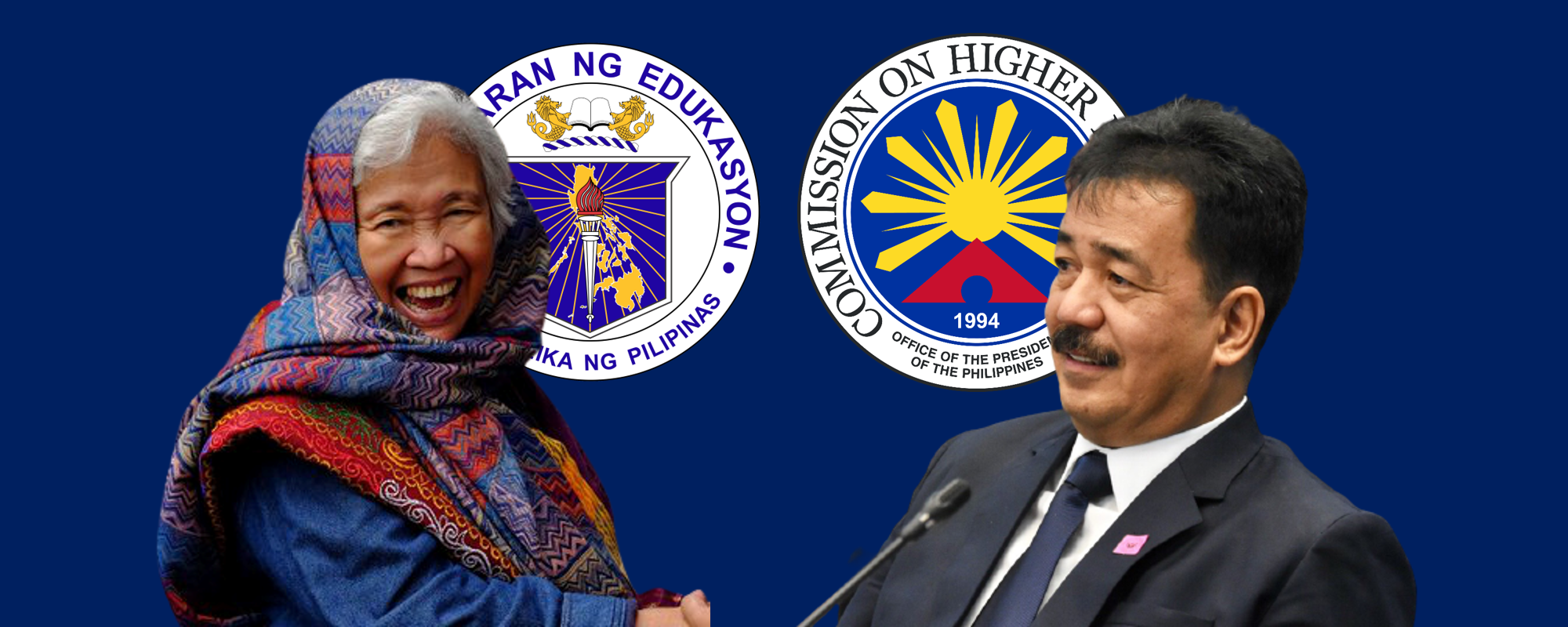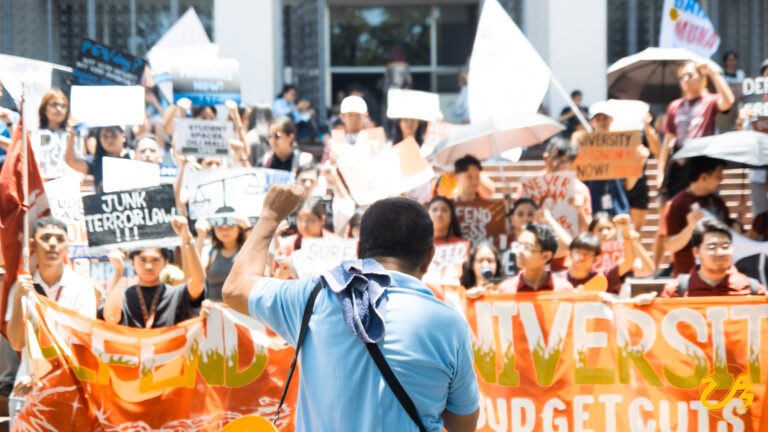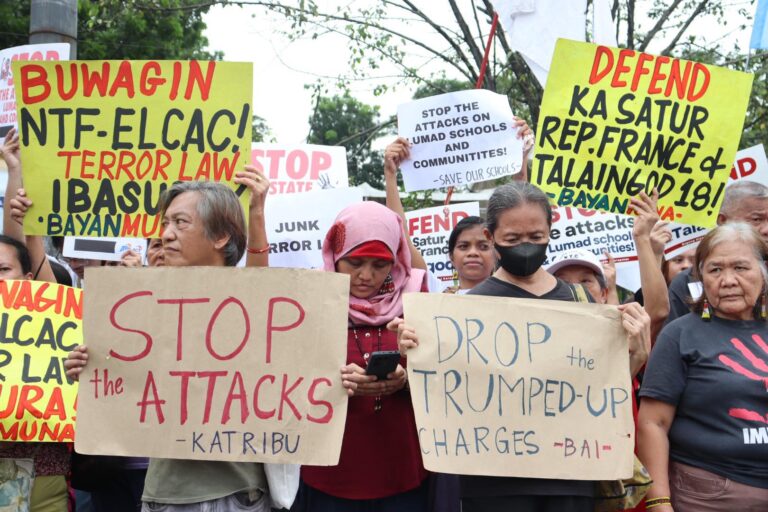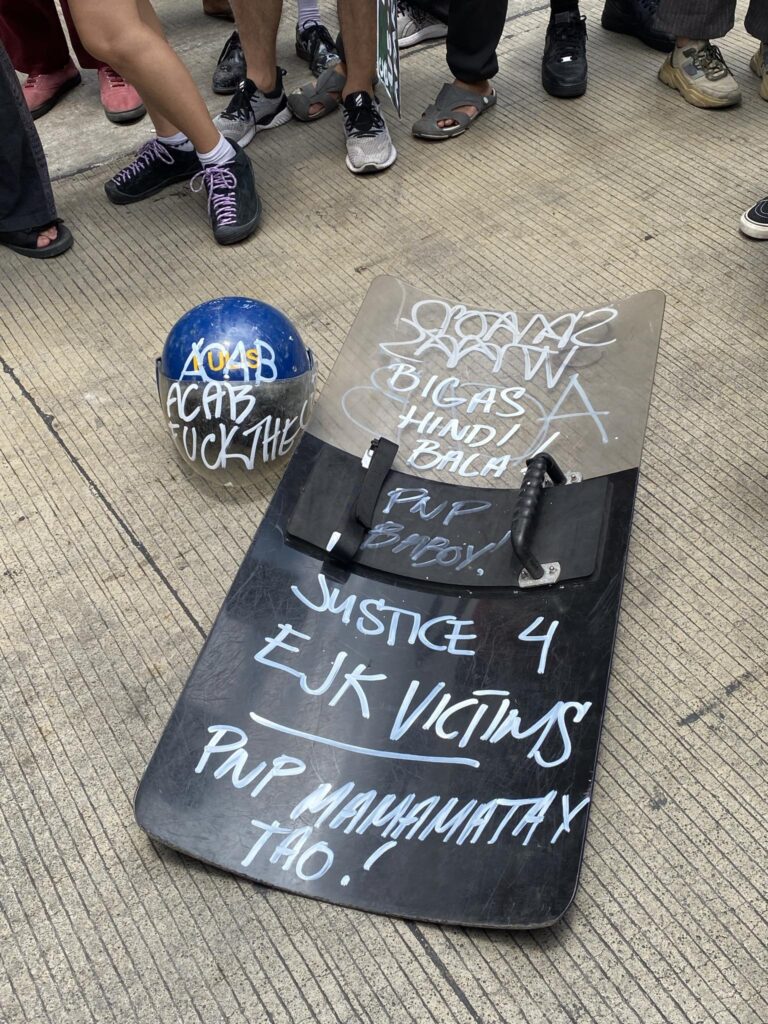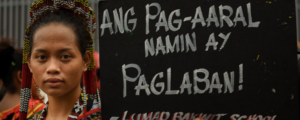
As soon as the Anti-Terrorism Act of 2020 was officially signed by the President on Friday, July 3, Far Eastern University (FEU) law professors along with progressive lawmakers of Makabayan have filed a petition at the Supreme Court (SC). Makabayan demanded to declare the entire law as unconstitutional while both groups requested for a temporary restraining order (TRO) to immediately cease its effects for the duration of SC’s ongoing investigation.
With the ongoing calls of #JUNKTERRORLAWNOW, the FEU professors fear how much the Anti-Terror Law or Republic Act No. 11479 (RA 11479) can breach their academic freedom as educators who teach about democracy, and how activism, opposition, and dissent are all crucial parts of it.
They have pointed out that under Section 45 of RA 11479, the Commission on Higher Education (CHED) and the Department of Education (DepEd) are enlisted as support groups of the Anti-Terror Council (ATC) which ensures the proper implementation of the policies against terrorism. This can be a grave threat to academic freedom as CHED and DepEd could be compelled to easily tweak curriculums.
The FEU law professors asked in their 84-page petition, “Can the ATC require the CHED or the Department of Education to formulate a curriculum prohibiting, tempering, or limiting the study of ideologies or advocacies which it suspects as “creating a serious risk to public safety” and therefore “endangers a person’s life” pursuant to Section 4 (a) of the proposed Anti-Terrorism Law?”
As several critics and legal professionals have pointed out how the definition of “terrorism” under Section 4 is indeed “vague and broad,” anyone or even any act could easily be tagged as “inciting to terrorism.” Section 4 also states that terrorism is committed “regardless of the stage of execution” and whether the person is “within or outside the Philippines.”
The petition also emphasized that even legitimate and lawful demonstrations “where people assemble to exercise their freedom of speech, of expression, and of the press” can be severely endangered–further hampering democracy in the Philippines. Perhaps, it is no longer a surprise that democracy is indeed dead in the country.
GRAVE THREAT TO ACADEMIC FREEDOM
Last June 6, the Ateneo de Davao University-University Community Engagement and Advocacy Council (Addu-UCEAC) called the Anti-Terrorism Act of 2020 a “threat to academic freedom.”
An educational organization composed of lawyers and a priest, Addu-UCEAC also questioned CHED and DepEd’s participation as support agencies of the ATC. As reported by SunStar Davao, the advocacy council also feared the possibility that CHED and DepEd might have to coerce schools to submit lists of campus organizations along with the name of its members which may be tagged by the law as “terrorist organizations.”
In 2018, the Armed Forces of the Philippines (AFP) has already blatantly red-tagged the University of the Philippines (UP) as an alleged recruitment center of the rebel groups Communist Party of the Philippines (CPP) and the New People’s Army (NPA). Ever since the country was placed under Duterte’s regime, state forces have been greatly funded to crackdown dissent and desperately silence oppositions.
Addu-UCEAC also highlighted the dangers that it could bring to press freedom as the contentious law could easily put under surveillance critical campus newspapers for “potential ‘terrorist’ remarks.”
Similar to several professors wanting to protect their freedom of expression in classrooms and the academic freedom to teach whatever they want even in exploring the “themes of dissent in democratic institutions,” Addu-UCEAC firmly objects the questionable provisions of Anti-Terrorism Act of 2020.
NON-INCLUSIVE ACADEMIC PLANS
After successfully instilling fear, anxiety, and unnecessary stress to teachers and parents for months in quarantine, it was only last June 8 that DepEd had officially declared that face-to-face classes are postponed until there can be a vaccine for COVID-19.
DepEd Secretary Leonor Briones had announced that preparations of self-learning modules for blended learning are already underway. Now that the country has been facing the “new normal,” the Duterte administration has not done anything yet to secure stable internet connections throughout the country.
Despite households falling on a tighter budget due to rampant unemployment, hunger, and poverty, parents have been forced to procure electronic devices to ensure the education of their children. Likewise, students have also been affected by the severe pressure of continuing self-learning on top of the horrendous reality of tuition fees.
According to DepEd’s partial available data as of May 14, it has approved the tuition increase of 645 out of 901 private schools despite claims of urging schools to defer tuition and school fee hikes.
Not to mention, CHED’s abandonment of calling for a “mass promotion” at the latter half of the previous school year rendered a heavy toll on students’ mental health as some schools still pursued continued learning. Both educational sectors seem only to be watching from an ivory tower, creating programs completely ignorant of the realities of every household.
Last May 16, a second-year criminology student of Capiz State University died in an accident while she was on her way home from searching for stable internet connection just to submit her requirements online. This incident intensified calls of #MassPromotionNow and #WalangIwanan.
Now, it is paradoxical for CHED and DepEd to hastily agree as a support agency of the ATC amidst their indeterminate plans for quality education of all students. People are losing their jobs, their families, their education, and their own life all in the face of an incompetent government who battles the virus with guns. History will remember that these educational sectors have supported the Anti-Terrorism Law in the midst of its people’s anguish because of a pandemic that was poorly managed.
Amidst pervasive attacks of state forces for both online and on-ground protest actions, the Filipino people remain undaunted of a government who does nothing but pass on the blame to its own citizens. State incompetency, neglect, and imperialism will not be merely exposed but soon enough be brought down by its angered people.
“If we protest we may die. If we remain silent, state neglect will also kill us slowly. We might as well risk our lives. Not because we don’t believe in science. We follow science. But we also believe protesting is life-saving while following health protocols,” Prof. Gerry Lanuza, Chairperson of Congress of Teachers/Educators for Nationalism and Democracy of the University of the Philippines (CONTEND-UP) publicly stated on his Facebook account on Monday.
This article was originally published last July 8, 2020.


